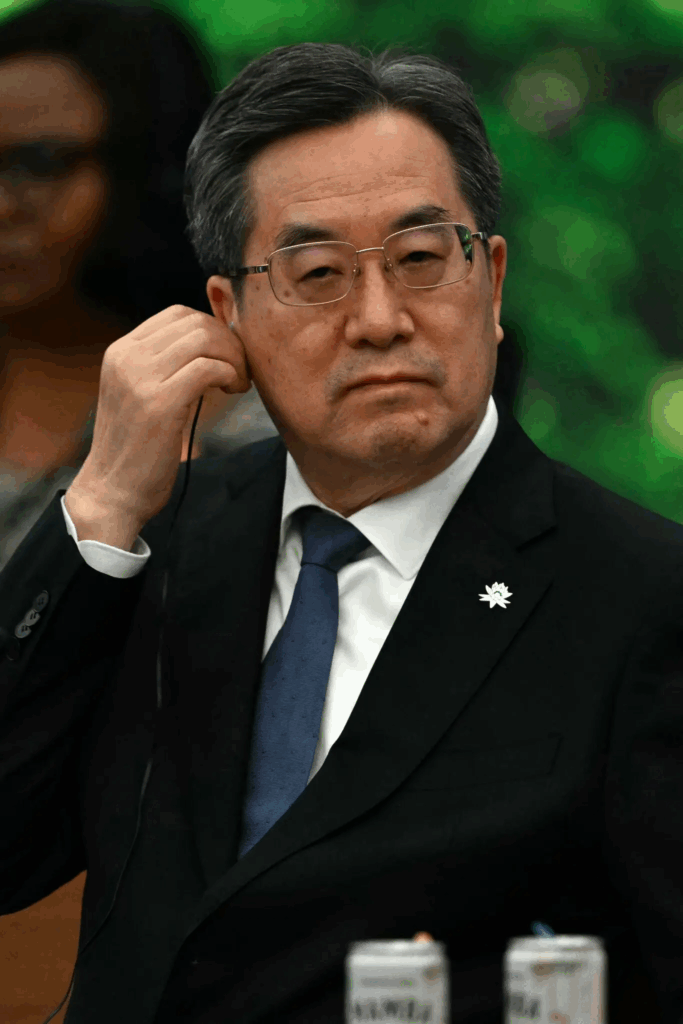The main purpose of this ongoing blog will be to track planetary extreme, or record temperatures related to climate change. Any reports I see of ETs will be listed below the main topic of the day. I’ll refer to extreme or record temperatures as ETs (not extraterrestrials).😜
Main Topic: At a COP30 Without the U.S., Allies and Rivals Call for Action
Dear Diary. Today is the start of Conference of the Parties #30 being held in Belim Brazil. I hold little hope for substantial climate protection and Earth change from this meeting given what has come out of the last fee meetings. Also, fossil fuel interests have made many undesirable inroads into meeting activities in in recent years, undermining policy unfortunately.
Nevertheless, at least member nations are talking despite the United States being absent.
There is hope, though:
Here are many more details from the New York Times:
COP30 Begins With U.S. Allies and Rivals Alike Calling for Action – The New York Times
At a Climate Summit Without the U.S., Allies and Rivals Call for Action
The calls for action on opening day stood in sharp contrast to the position of the President Trump, who has called global warming a “con job.”

Leaders meeting on Thursday in Belém, Brazil. The conference is scheduled to run through Nov. 21.Credit…Pablo Porciuncula/Agence France-Presse — Getty Images



By Somini Sengupta Brad Plumer and David Gelles
Reporting from Belém, Brazil
Published Nov. 6, 2025 Updated Nov. 7, 2025, 11:35 a.m. ET
The international climate summit opened on Thursday in Belém, a Brazilian city on the edge of the imperiled Amazon rainforest, with several of America’s global allies and rivals alike making the case that slowing down global warming is today key to economic growth and energy security.
It was a sharp counterpoint to President Trump, who has called climate change a “con job” and attacked global efforts to transition away from coal, oil and gas.
Few speakers named Mr. Trump, who has launched a full-throated and somewhat successful attack on global efforts to reduce the world’s reliance on fossil fuels. The Trump administration has withdrawn from the landmark Paris climate agreement, and no senior American government officials are present at the meeting in Belém.
The summit comes at a time when international cooperation is lagging on virtually everything, war and trade disputes are raising prices of basic goods, and extreme weather events, aggravated by the burning of coal, oil and gas, has heightened human suffering. In the last two weeks alone, storms and hurricanes supersized by climate change clobbered Mexico, Jamaica and Haiti.
Globally, 2025 is on track to be the second- or third-hottest year on record, part of a decade that witnessed the hottest 10 years on record, according to the World Meteorological Organization. The cost of extreme weather hazards to the global economy: around $1.4 trillion a year, according to Bloomberg NEF.
“We can choose to lead or be led to ruin,” António Guterres, the Secretary General of the United Nations, told the audience. He used the podium to scold the fossil fuel industry, as he often does, and leaders who he said were “captive to fossil fuel interests, rather than protecting the public interest.”
The leaders who came represented large countries and small ones, industrialized nations and emerging economies. They spoke to the world as much as they spoke to their constituencies at home. Limiting global warming, they said, was crucial for their citizens’ current health and well-being as well as their national security and economic competitiveness.
Keir Starmer, the British prime minister, said homegrown energy — wind and nuclear power in Britain’s case — enable countries like his to become energy independent from “dictators like Putin.” His government has sought to rapidly expand renewables but, at the same time, has struggled to keep electricity prices down.
“Investment for climate change is the growth and prosperity plan for this century,” said Finland’s President, Alexander Stubb.

From left, Prime Minister Keir Starmer of Britain, President Luiz Inácio Lula da Silva, of Brazil, and Prince William in Belém on Thursday.Credit…Wagner Meier/Getty Images
Prince William, heir to the British throne, lauded the chance for countries to create jobs and new technologies. “It’s a profound opportunity to build a cleaner economy,” he said.
Vice premier Ding Xuexiang of China talked about China’s path of “green and low carbon development” as the means to promote economic growth and new jobs. That was a clear sales pitch to the many countries from Africa, Latin America and the Caribbean assembled here. Chinese companies dominate the global production of clean energy technologies. Little wonder, then, that he called on countries to “remove trade barriers and ensure the free flow of quality green products.”
And the summit’s host, Brazil’s president, Luiz Inácio Lula da Silva, who has embraced Chinese investments in electric vehicles and wind power in Brazil, said “extremist forces invent untruths for electoral gains.”
Bringing world leaders to Belém, one of Brazil’s poorest provincial capitals, is central to Mr. Lula’s efforts to draw attention, and money, to the Amazon rainforest and the people who depend on it for their economic and cultural sustenance. “It is the time for the people of the Amazon to ask what is being done by the rest of the world to avoid the collapse of their house,” he said.

Vice premier Ding Xuexiang of China.Credit…Mauro Pimentel/Agence France-Presse — Getty Images
Brazil announced a new investment fund to reward countries for protecting their standing tropical forests. The Brazilian government said $5.5 billion had been promised, including $1 billion from Brazil’s own coffers and $3 billion from Norway.
And yet, only weeks before the summit began, Mr. Lula gave his blessing to oil drilling in the Amazon. And even as deforestation rates have gone down during his tenure, the drive to increase soy exports, mainly to China, has destroyed a critical ecosystem of grassland and forest known as the Cerrado.
The summit in Belém marks the 30th year of global diplomacy to limit global warming, and it comes 10 years after the landmark Paris agreement, which urged all countries to set increasingly ambitious climate targets and urges rich countries to help poor countries shift their economies away from fossil fuels that cause climate change.
The summit opened as scientists warned that the world is now virtually certain to blow past a much discussed goal of limiting global warming to 1.5 degrees Celsius, or 2.7 degrees Fahrenheit, above preindustrial levels. For years, many vulnerable countries and climate activists had said average warming above that level would bring greater risks from heat waves, fires and storms. That would have required countries to collectively cut their emissions nearly in half between 2019 and 2030. But nations have not come close to doing so, and global emissions are instead higher than they were in 2019.

Cruise ships, brought in to house delegates, near Belém on Thursday.Credit…Carlos Fabal/Agence France-Presse — Getty Images
The latest U.N. estimate suggests that the world is more likely headed for somewhere around 2.7 degrees Celsius of warming, compared with preindustrial levels, under current policies.
“The hard truth is that we have failed to ensure we remain below 1.5 degrees,” Mr. Guterres said. “This is moral failure, and deadly negligence.”
On display at the summit was also the split-screen reality of global climate action. Renewable energy technology and electric vehicles have taken hold in rich and poor countries alike, even if the pace hasn’t been fast enough to meet some of the most ambitious climate goals of the Paris agreement.
The price of solar energy in particular has fallen faster than projected. This year, the world is set to invest a record $2.2 trillion in low-carbon energy technologies like solar panels, wind turbines and electric vehicles. That’s twice as much as will be spent investing in oil, gas and coal technologies.
As Gabriel Boric, the president of Chile, pointed out in his remarks at the summit, “Ten years ago, we did not have electric buses. This year, 60 percent of the buses in our capital city, Santiago, are electric.”
Ana Ionova contributed reporting.
More From the Climate Talks in Brazil

A Chinese E.V. Delivers the Host, and a Message, at the Global Climate Summit

The U.S. Is Skipping This Year’s Climate Summit. For Many, That’s OK.
Somini Sengupta is the international climate reporter on the Times climate team.
Brad Plumer is a Times reporter who covers technology and policy efforts to address global warming.
David Gelles reports on climate change and leads The Times’s Climate Forward newsletter and events series.
Here are more “ET’s” recorded from around the planet the last couple of days, their consequences, and some extreme temperature outlooks, as well as any extreme precipitation reports
Here is More Climate News from Friday:
(As usual, this will be a fluid post in which more information gets added during the day as it crosses my radar, crediting all who have put it on-line. Items will be archived on this site for posterity. In most instances click on the pictures of each tweet to see each article. The most noteworthy items will be listed first.)